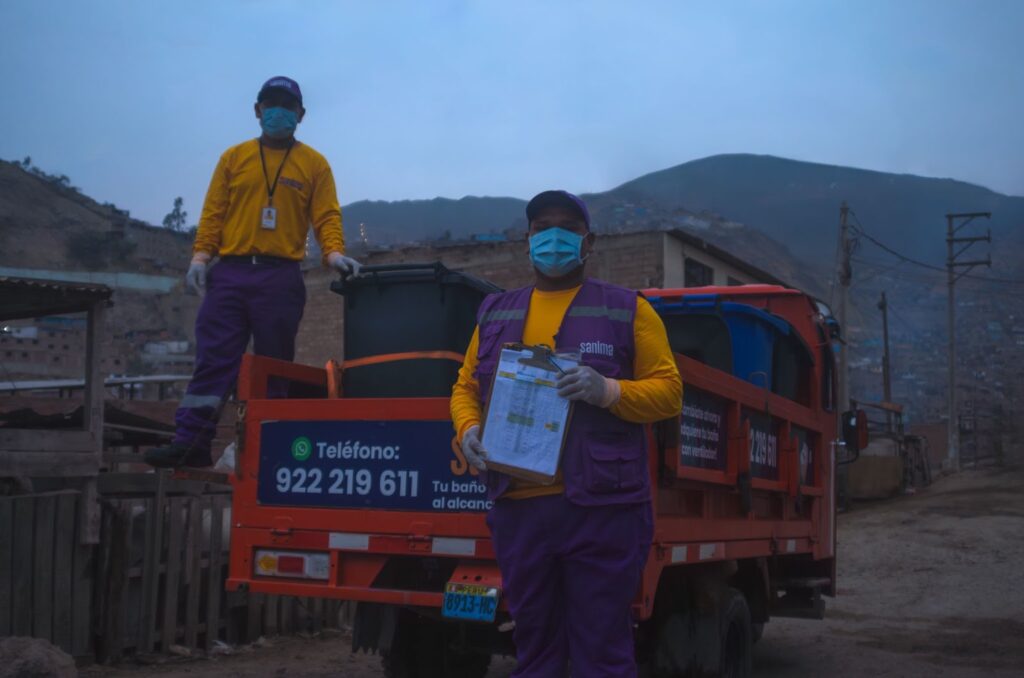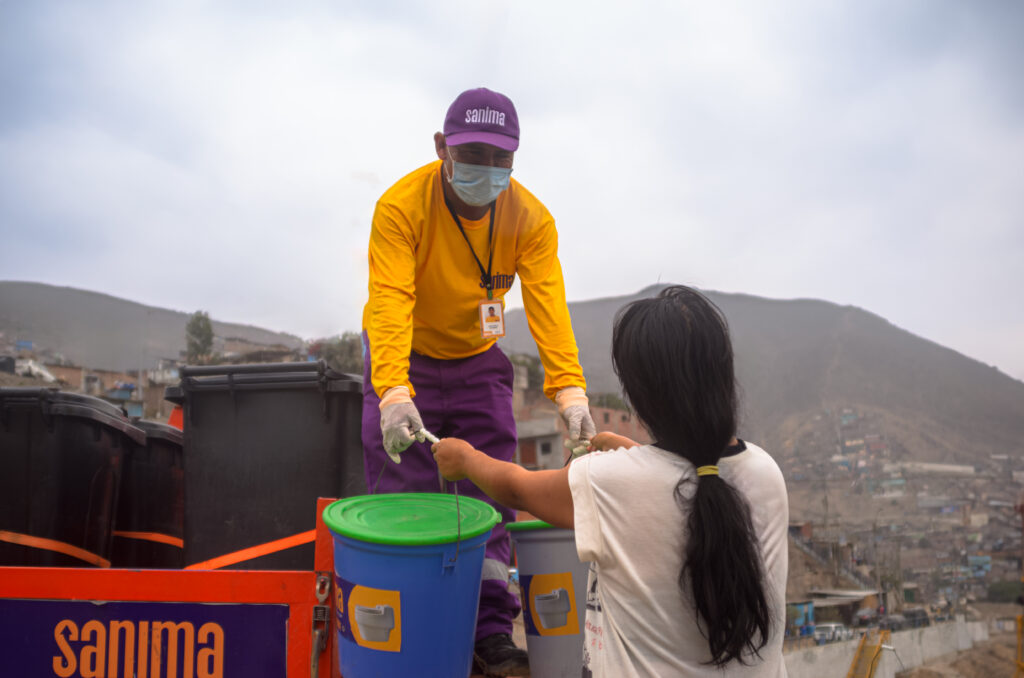We spoke with Milagros Arcos, Sanima’s Operations Manager, about our partnership to leverage data science to expand safe sanitation solutions for a cleaner, healthier Lima. She talks about the focus and future of the Peruvian nonprofit and what she thinks any social impact organization needs to have in place in order to tackle the world’s toughest challenges with AI and data science. We’re honored to work with Sanima, and share their story of the valuable work they do. Enjoy!
Sanima is pioneering sustainable, safe, and dignified sanitation alternatives in Lima. To help improve their service delivery and scale their vital services, DataKind partnered with Sanima to optimize waste collection routes, using (and enhancing) our Container-Based Action Routing Tool (CART). Meeting the unique needs of sanitation in complex urban environments, our collaboration optimizes business operations, but also plays a crucial role in improving public health and quality of life of urban residents.
Check out our interview with Milagros below!
Can you give us an overview of what motivated Sanima to explore partnering with DataKind and what goals you hoped to achieve?
DataKind had already worked with other organizations within the Container Based Sanitation Alliance, and we heard the impact of the results they had, so we decided to contact them. Our main expectation was that this tool would be easy to use for our team and help us optimize our collection routes.
How do you see CART being embedded into your programs and what’s the impact you hope it will have for your organization and its mission?
Its adoption as part of our route reordering process was very simple since the tool was co-created all the time with constant feedback from our team. It takes into account all the necessary variables and is easy to use. We hope that this tool can help us have a more orderly escalation and continue impacting more people in Peru.
What were some memorable moments from the collaboration?
At the beginning, we were very cautious with the work we were going to develop since our service is provided in a complicated geography that presents quite specific challenges. Normally foreign organizations fail to grasp our problems or provide us solutions that do not fit our environment. However, the DataKind team was very interested in having the entire context clear to be able to move forward with the development. We were very excited by their commitment not only to the project, but also that they connected with our purpose of providing this sanitation alternative to Peruvian households.

How do you perceive the long-term sustainability of the solution? Are there any concerns, ethical or technical considerations, that could impact its continued success?
At the moment, we have not seen any impediment to being able to adapt this tool to future uses. Our commitment is to keep it active as part of Sanima’s operations.
How do you see this work impacting the use of data science and AI for safe and sustainable sanitation?
For organizations that provide sanitation alternatives around the world, having efficient operations is crucial to the sustainability of our different business models. Any alternative that generates an optimization in this process is essential for the scaling of our service. We hope that with this success story new opportunities can be opened for future developments.
Hindsight is 20/20, but knowing what you know now, what advice would you have given DataKind at the start of the partnership?
As a team, we are very happy with how this project has been handled. That said, I would think that what could be suggested is to better manage the project times, perhaps through stages to speed up the process. With the expertise of the DataKind team, the requirements and fixed review points could be organized to have the CART implemented in a shorter time, thus maximizing the effort that volunteers make.
In what ways has the collaboration with DataKind influenced data-driven decision-making within Sanima?
Normally when opening new service areas or routes, it took us several weeks to collect information and validate it in the field. With the use of this tool, we hope to optimize this process to just one day of collecting information and another to ratify the information provided by CART.
The DataKind collaboration with Sanima was led by Sebastian Ouellet, Ratri Maria, and Handre Williams.
Milagros Arcos is passionate about innovation. She has extensive experience in social entrepreneurships and has been a leader of national and international projects, such as Innóvate Perú, UNICEF, Concytec, and others. Milagros has a bachelor’s degree in social management from Pontificia Universidad Católica del Perú.
Images courtesy of Sanima.
Join the DataKind movement
- Interested in supporting our work? Donate here.
- Interested in sponsoring a project? Partner with us.
- Interested in volunteering with DataKind? Look no further.
- Interested in working at DataKind? We’re hiring!
- Interested in submitting a project? Go for it!



